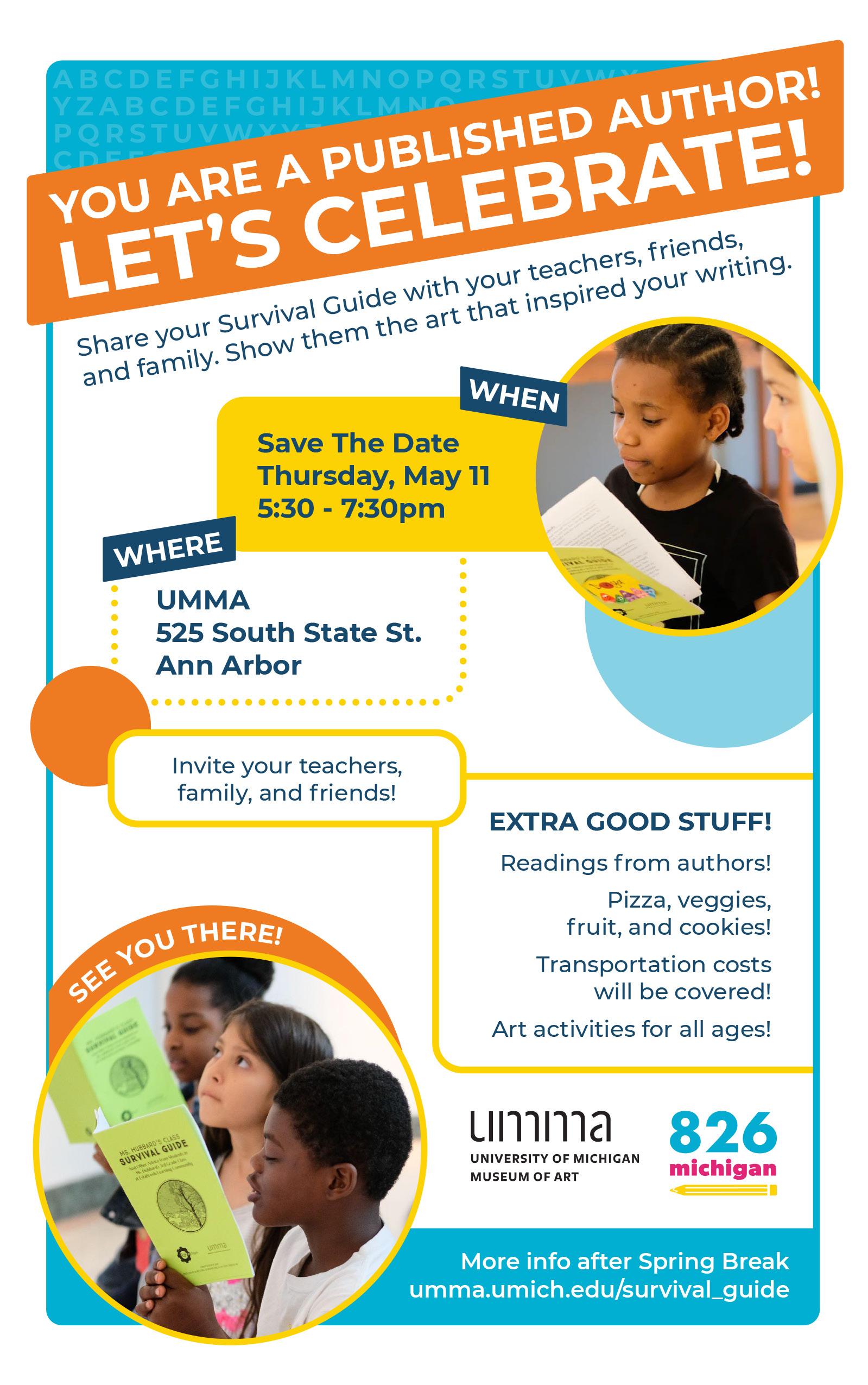the Art Museum
Advice from Students in Ms. Happy’s Third Grade Class at Erickson Elementary
A D VENTURI N G THRO U HG the art museum
Ms. Happy’s Class
Advice from Students in Ms. Happy’s Third Grade Class at Erickson Elementary
826
National’s Commitment to Inclusion
As an organization committed to encouraging youth in their creative expression, personal growth, and academic success, 826 National and its chapters recognize the importance of diversity at all levels and in all aspects of our work. In order to build and maintain the safe, supportive 826 environment in which great leaps of learning occur, we commit to inclusion: We will not discriminate on the basis of race, religion, ethnicity, age, gender identity, sexual orientation, socio-economic status, nationality, marital status, English fluency, parental status, immigration status, military service, or disability.
826michigan Staff
Megan Shuchman Executive Director
Catherine Calabro Cavin Education Director
Megan Gilson Program Manager
Denise Ervin Program Manager
Caitlin Koska Volunteer Manager
Kinyel Friday Operations Manager
Ola Faleti Institutional Giving Strategist
Kayla Chenault Interim Program & Volunteer Coordinator
Paige Bennett Teaching Artist
Eli Sparkman Teaching Artist
The U-M Museum of Art puts art and ideas at the center of campus and public life. We create experiences that enrich our understanding of one another, foster joy, and build a more just future. Through exhibitions, programs, research, and community partnerships we are redefining what a campus museum can be.
Copyright © 2023 by 826michigan and Blotch Books.
All rights reserved by 826michigan, the many whims of Dr. Thaddeus Blotch, the illustrators, and the authors.
This book is a work of fiction. Any similarities to any people or events, real or imaginary, is purely coincidental. No part of this book may be reproduced without express written permission from the publisher, except for small excerpts for the purposes of review or scholarly study.
Many thanks to the University of Michigan Museum of Art and our volunteers for their participation in this field trip.
By purchasing this book, you are helping 826michigan continue to offer free student programs. For more information, please visit: 826michigan.org
What would happen if you could jump inside a work of art?
This isn’t an ordinary trip to the museum! During this field trip program, students imagined that they were shrinking down to the size of a paper clip and then jumping inside of different art pieces at the University of Michigan Museum of Art. They worked with volunteers and museum educators to write creative survival guides, giving advice for how readers might survive inside of these different art worlds. Students’ writing was then published in a book–the one you are now holding. Students toured the museum and saw the art that they wrote about in real life, reading their newly-written survival guides in front of the art.
This field trip is offered each year to every third grade class in the Ypsilanti Community Schools district. The program is a partnership between 826michigan, a local youth writing organization, and the University of Michigan Museum of Art to highlight the connections between art and writing.
We hope you enjoy reading these guides to survival in some very unusual settings!
How to Survive Alice
Florencia Pita
Alice, 2007
Polymer foam, PETG, urethane
Gift of the artist
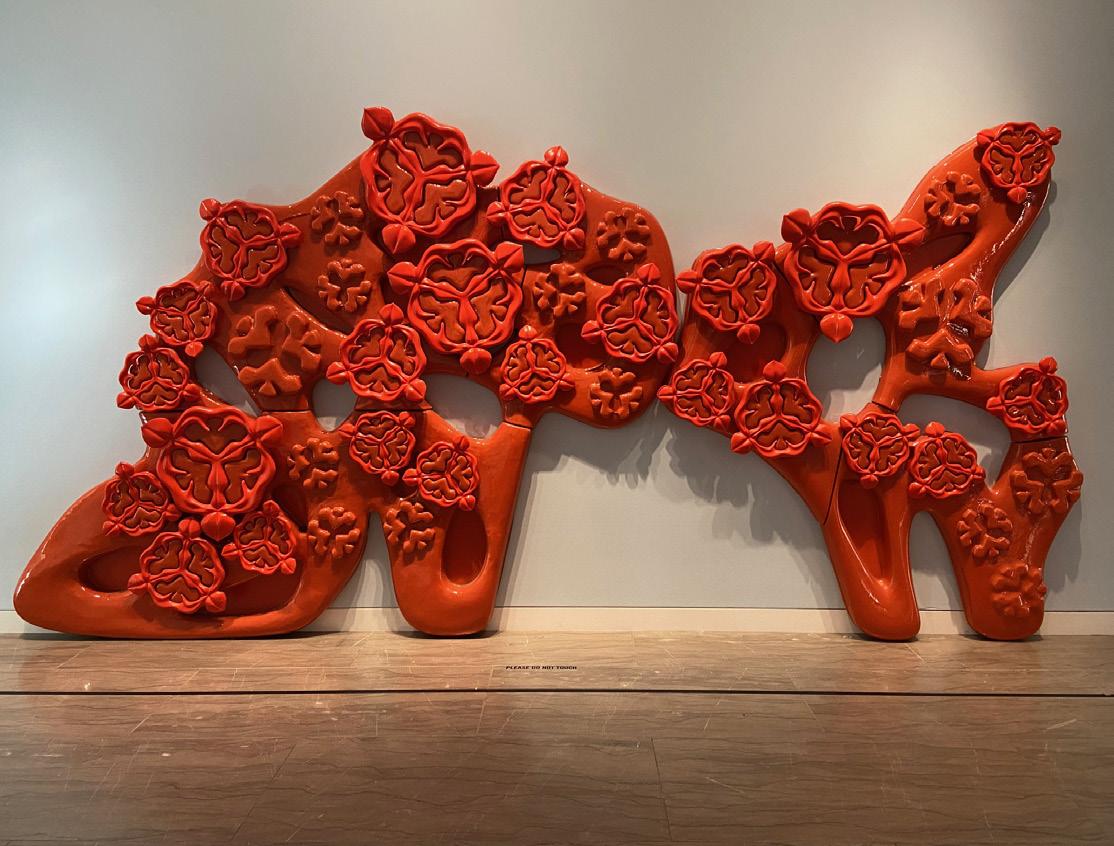
Ms. Happy’s Class
First, you should look around. You will see furniture. Climb down to the floor and find a fridge. You only find wax animals.
Then, you need to find a place to sleep. Try to sleep in one of the caves or holes. Cut off a piece of a nearby bed. If a volcano erupts, you should run!
Next, you should look out for people to see if they can help you. You will also need to look out for craters, red flowershaped bears, lions, bugs, and other people! You should also look out for dinosaurs, dragons, dodo birds, and ants–they are hidden in the caves. You should build a house on the top of the art where it’s smooth.
Last, you should find a phone in the middle of the art and call for help! If no one picks up the phone, you should look for materials to build an anti shrinking machine.
How to Survive Future Cache
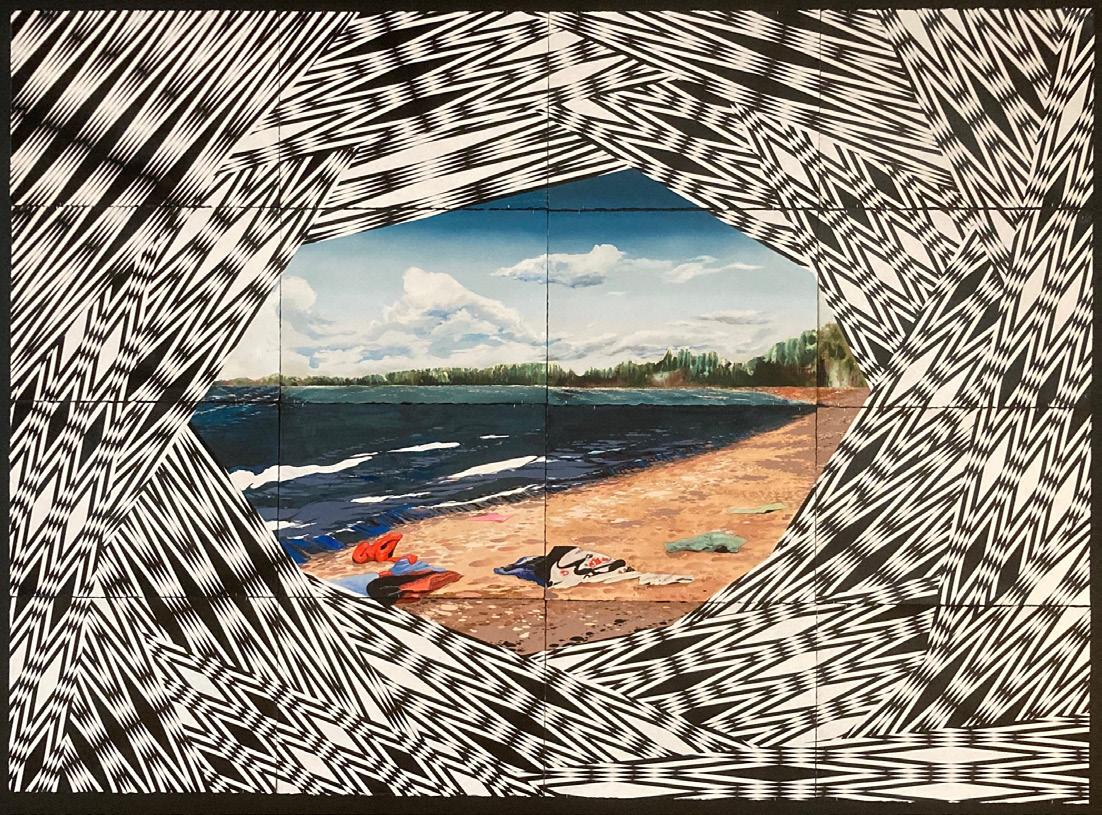
Group 1
First, run to find things to make a house from the forest. You take the towels and clothes with you. Hide in your house on the right side of the art piece near the trees.
Then, try to find an animal companion to keep you safe from the person who controls the dinosaurs that roam the island. You tame your companion with a bone since your companion is a wolf. You should hunt with your wolf companion to find and cook a chicken to eat.
Next, find supplies to make a spear and hunt the creepy man’s dinosaur. Once you have hunted the dinosaur, the creepy man gets mad at you and chases you. The creepy man brings his baby with him and has a very wild smile. You run from him.
Last, you run to the creepy man’s headquarters and find a large portal to escape against a huge wall. Within the headquarters, the creepy man makes a huge tornado. You quickly run through the portal to escape the art and tornado!
Group 2
First, you wake up from a nap and you realize your family isn’t there. You try to find your family but then you see some dangers. You try to stay away from all of the dangers like great white sharks, stingrays, and venomous snakes. You can do this by running away.
Then, you should build your shelter. You could use glue, sticks, a hammer, and tools. You should run through the forest so you can get the wood, bricks, and sticks for your shelter. You would need to build two different shelters, one on the sand and one in the forest because you need one for sleep and one for playing. After you build the shelter, you can jump in the water because it is hot.
Next, you need food. You are going to find seafood and you have to try to cook it. Some of this would be fish, crab, chicken and octopus. You could walk to the grocery store if you can find one. You should make a fire or cook the food on a grill.
Last, you should try to get out. You can find the entry, where you came in, and try to get out of there. You would find this place in the back in the woods. You could run through the forest. If you can’t find the entry, you can build a car to leave the art world.
How to Survive Lion Dance and Monkey Dance
Unrecorded, Japanese
Top: Lion Dance Under Red Plum Blossoms, 1730-1740
Bottom: Monkey Dance Under White Plum Blossoms, 1730-1740
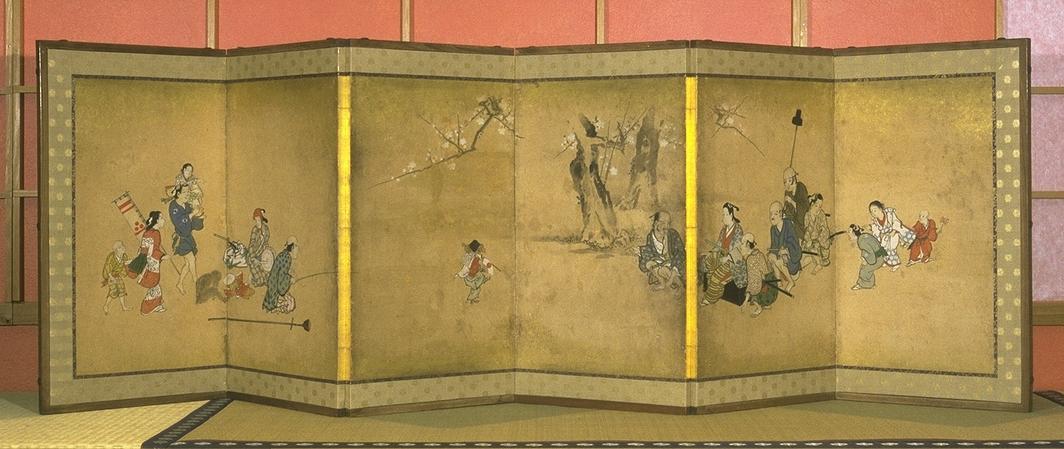

One of a pair of 6-fold screens ink, color, and gold pigment on paper
Museum purchase made possible by the Margaret Watson Parker Art Collection Fund
Group 1
First, you look for food. You knock on the door of the house to see if they have food. If the people are nice they will give you chicken and ramen.
Then, you talk to the kids. They might be creative and know how to build a shelter. You should build a fire not near people and not too near the river. The water might splash on the fire.
Next, you should build a trap that will drop on the monster. Be careful of the man with the white hat, he might be a spirit.
Last, using one of the sticks the man in the red hat has, you write “HELP” a hundred meters large. Your mom will come to get you.
How to Survive Nevelson Dark
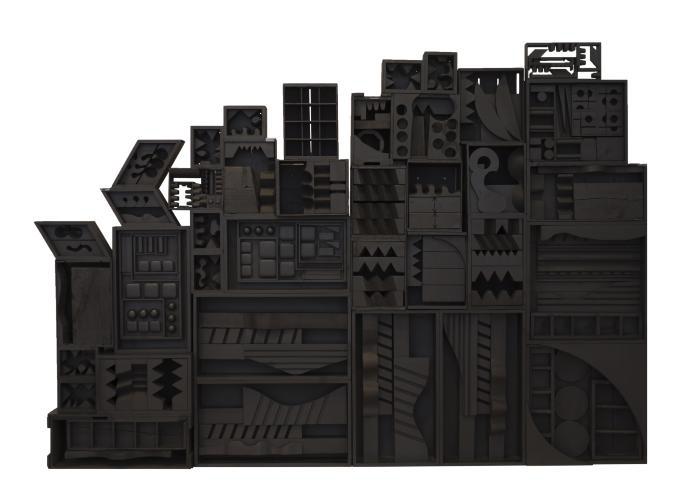
Presence III
Dark Presence III, 1971
Painted wood
Gift of Bobby Kotick
Group 1
First, you need a house. You should build a big house with a bed, a couch, and a refrigerator. It needs to be big enough so you can run around and play inside. You can have a black cat as a pet.
Then, you need to look for food and water. The whole art is made of chocolate, so you are safe to eat it. You can have a cow farm right above the house. You can milk the cows and make hot chocolate. Above the farm, you should build a Kool-Aid pool that you can drink from as well.
Next, you need to defeat the chocolate dragon during a blood moon. You can get the dragon out of the sky with a nuclear ray blaster that has 2,200,200 bolts of energy. You can eat the chocolate dragon once it’s out of the sky.
Last, you need to defeat the goblins. They will be coming out of a cave. You can hypnotize Harold, the beast in the sky, and use him to defeat the goblins.
Group 2
First, you start exploring up near the top. There’s a key and a shovel! It’s very dark, and you are scared. You find a flashlight hidden in a hole.
Then, you find a toilet hidden in another hole. You find food in a hole like grapes, broccoli, corn, mashed potatoes, carrots, chicken, cake, and ice cream! The place is painty and dusty, so you will need new clothes because yours will get dirty. You take a shower and wash your clothes in the washing machine you found. Then you clean the whole place so it’s not dirty anymore.
Next, you will find a water dispenser near the top, so you can drink water. You chop up your food and eat your ice cream. Then, you should have a party and invite all your friends! It’s a dance party with the cake and ice cream!
Last, you need to find a door to get out! You use the key you found at the start and escape . . . but you can always use the key to come back and have more dance parties!
How to Survive Ngoromera
Masimba Hwati
Ngoromera, 2020
Brass, iron, copper, carbon steel, and plastic
Museum purchase made possible by the University of Michigan Office of Diversity, Equity, and Inclusion, and the Director’s Acquisition Committee, 2020
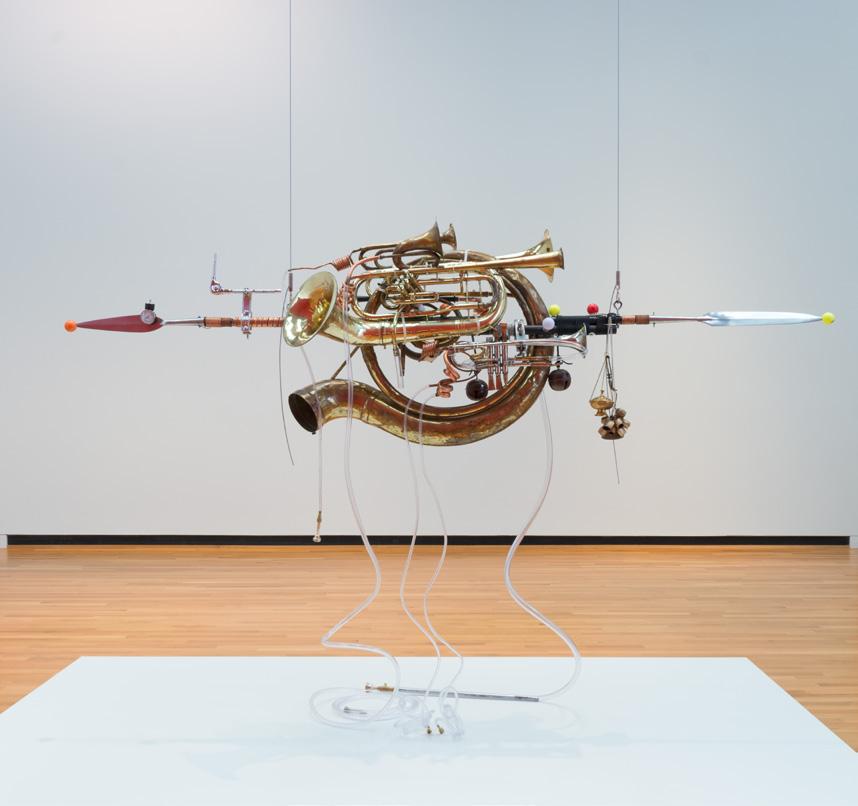
Group 1
First, you enter through the dark tube at the bottom. Then, you will encounter a scary monster that has hair, eight eyes, and two long sharp teeth with horns on her head like a demon. The monster does not have a tail but she does have long sharp nails. The long clear tubes are how the monster goes in and out. Maybe there’s water that can go in or out too and you could use the one of the tubes as a straw.
Next, you could jump out the top horn and slide down the chain. You could ring the bell and call for help. Maybe you could call Amaya. She could bring you a ready-made rocket ship and you would be good to go.
Last, you can be blown out of the end of the trumpet and blasted into space. While in transit, you will go back to normal size.

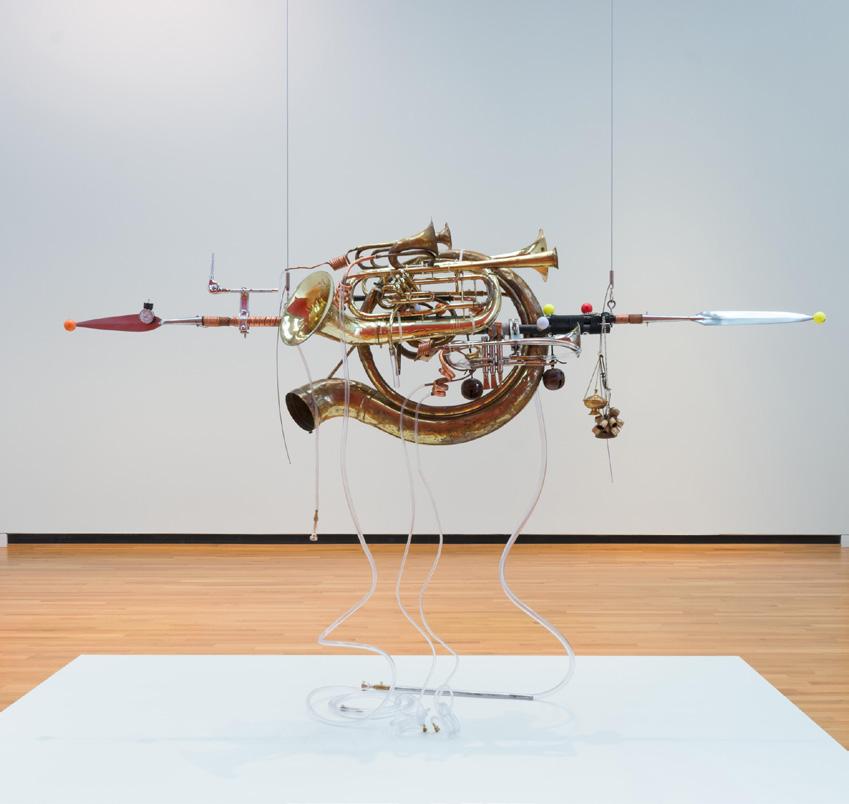

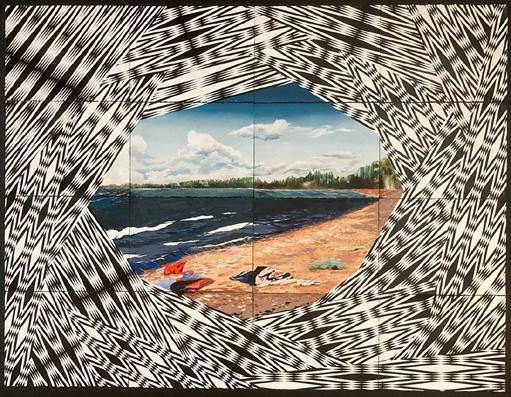

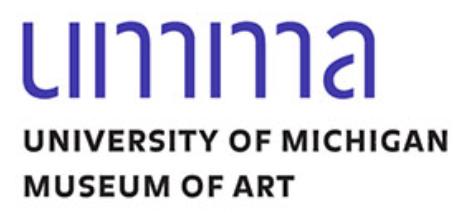
WRITE YOUR OWN SURVIVAL GUIDE!
Author Name:
How to Survive:
First, Then,
About the Author
WRITING IS
A way to figure things out by ourselves
A way to help us connect to our world
We create a safe place to be ourselves and try new things
We support the ways that writers work (like thinking, sketching, talking)
We study the writing we want to do so we can try it
We learn how to change our writing for genre, audience, and purpose
We work with a group of writers who help and support each other
www.826michigan.org
A way to help us learn who we are and who we will become
A way for us to use our power to make changes and build a better world
826 National was inspired to take a stand on issues of inclusion and diversity in light of the many events that spotlighted social and racial injustices throughout the country. We as educators, volunteers, and caring adults need to be aware of the wide range of issues our students face on a day-to-day basis. We need to support these young people as they navigate through and try to make sense of the world and their own identities.
We need the support and the feedback from our community to ensure 826 is living up to these standards. Through our inclusion statement, our internal diversity and inclusion group, cultural competency resources provided to staff and volunteers, and partnerships with other organizations, we are always working towards being a more inclusive and supportive organization.
We at 826 have the privilege of working with the next generation of scholars, teachers, doctors, artists, lawyers, and writers. It's our job to make sure they are able to take their own stands.














As an organization committed to encouraging youth in their creative expression, personal growth, and academic success, 826 National and its chapters recognize the importance of diversity at all levels and in all aspects of our work. In order to build and maintain the safe, supportive 826 environment in which great leaps in learning happen, we commit ourselves to inclusion: we do not discriminate on the basis of race, religion, ethnicity, age, gender identity, sexual orientation, socio-economic status, nationality, marital status, English fluency, parental status, military service, or disability.

The 826 National network is committed to encouraging youth to express themselves and to use the written word to effectively do so. We encourage our students to write, take chances, make decisions, and finish what they start. And 826 strives to do this in an environment free from discrimination and exclusion.









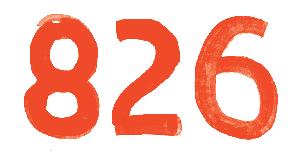



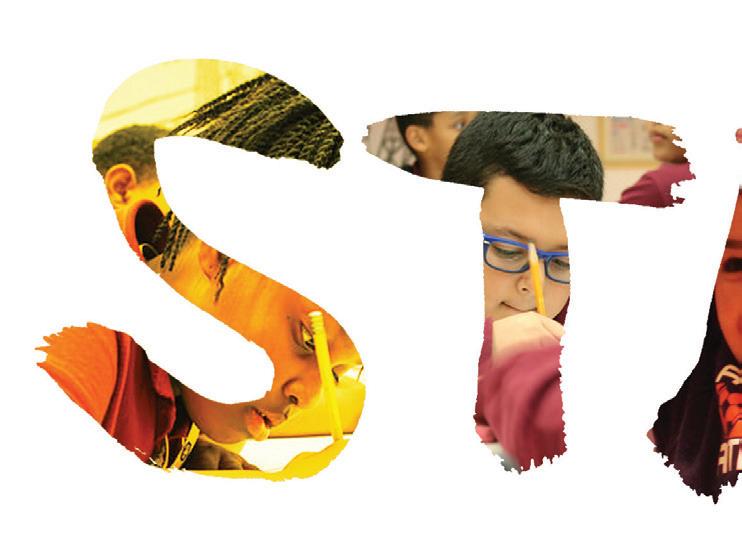
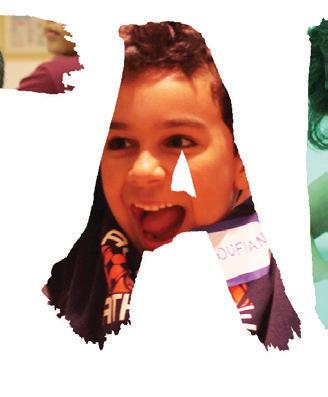
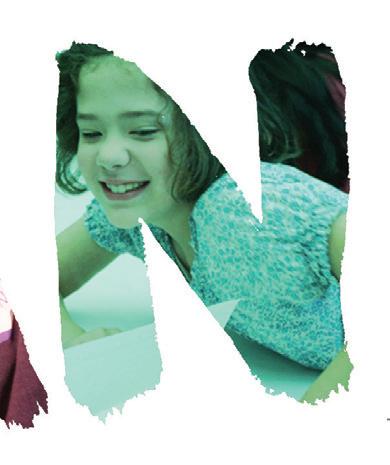
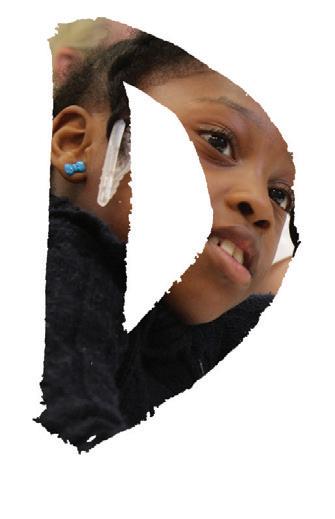 by Gerald Richards, CEO
by Gerald Richards, CEO



